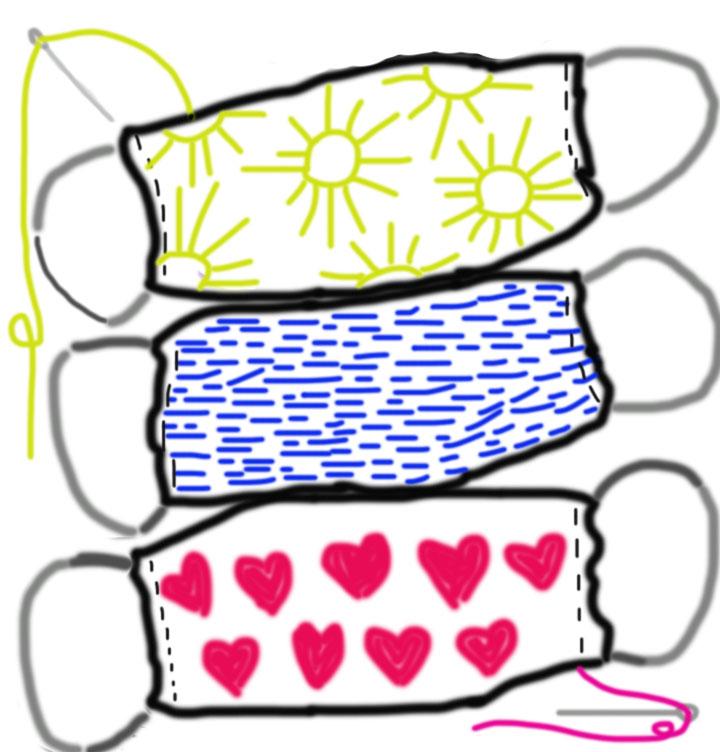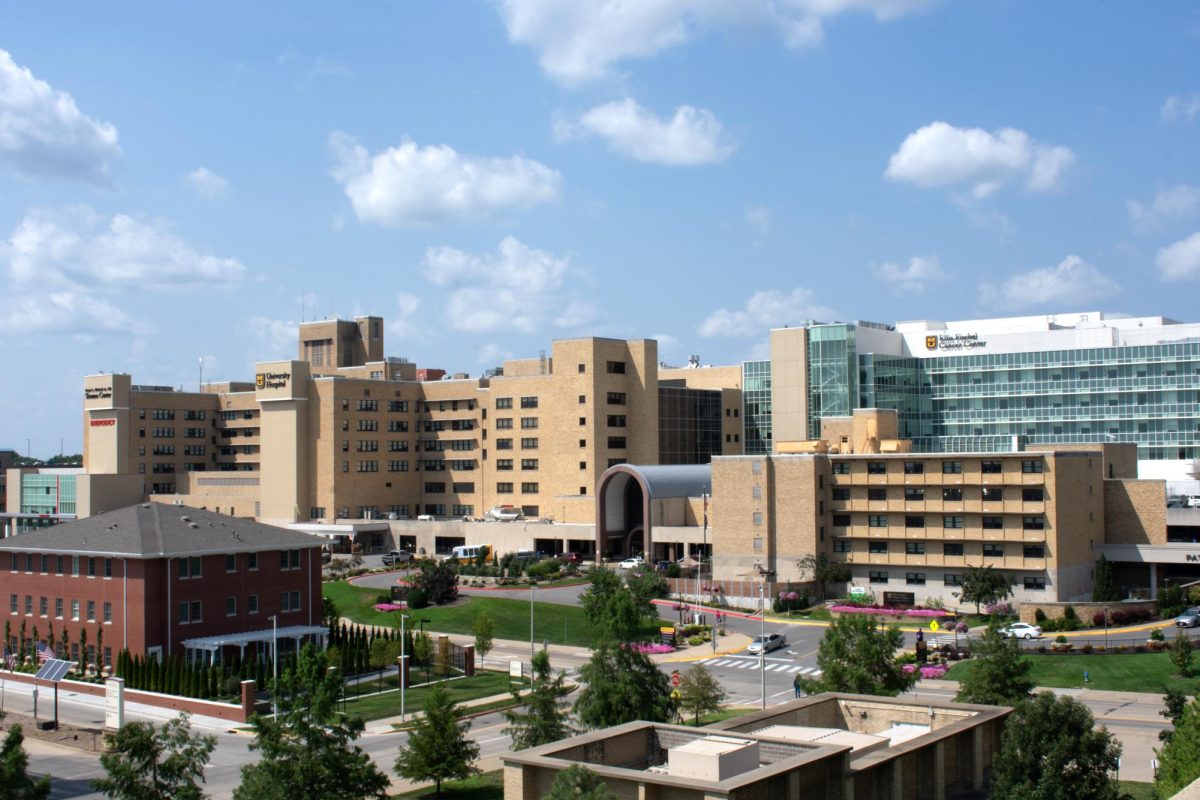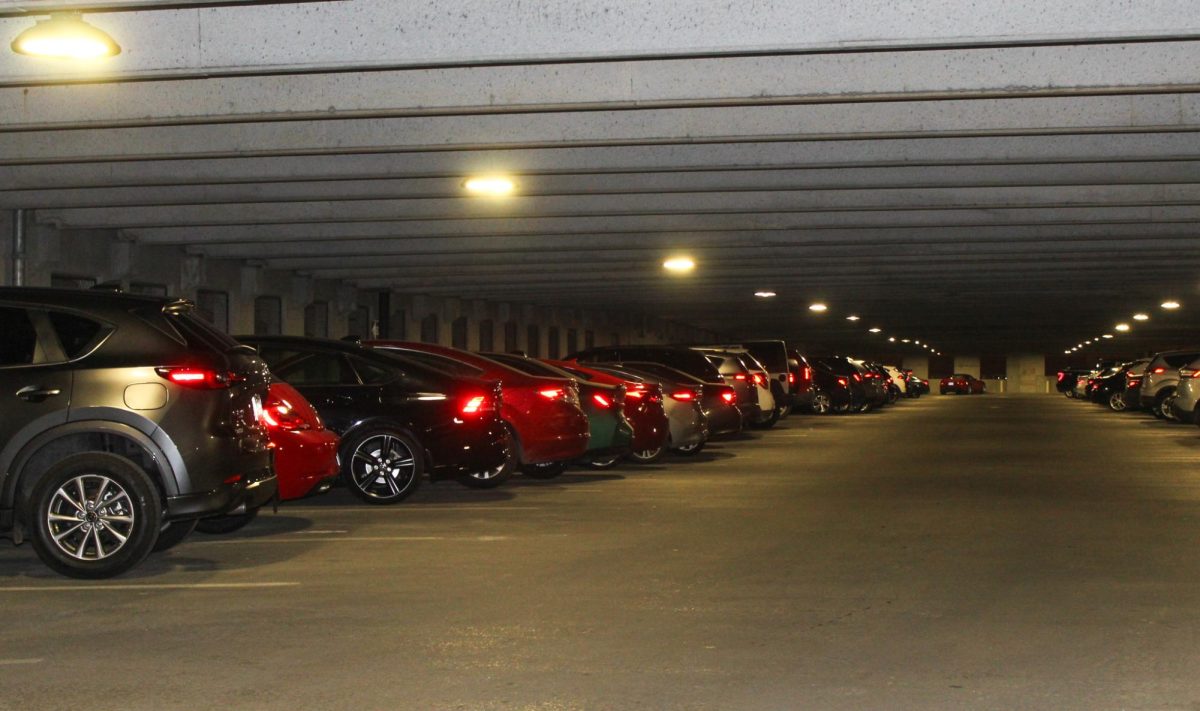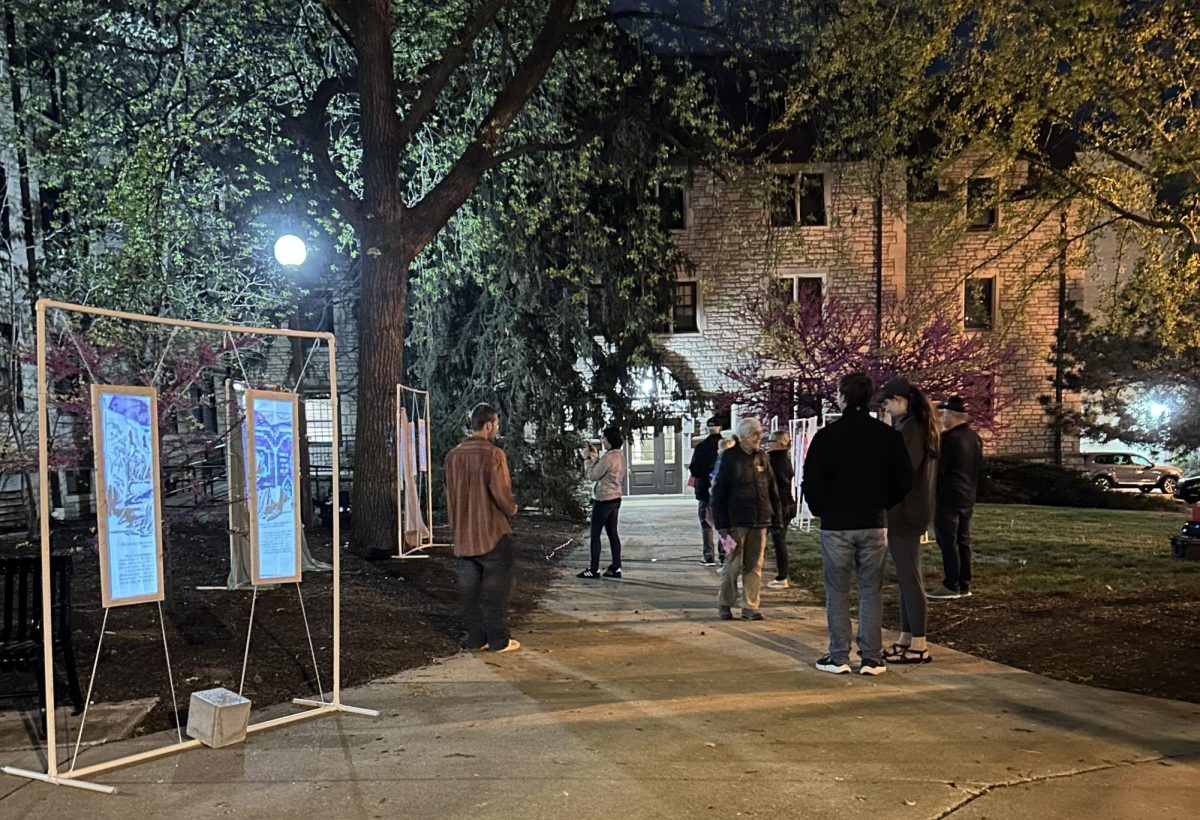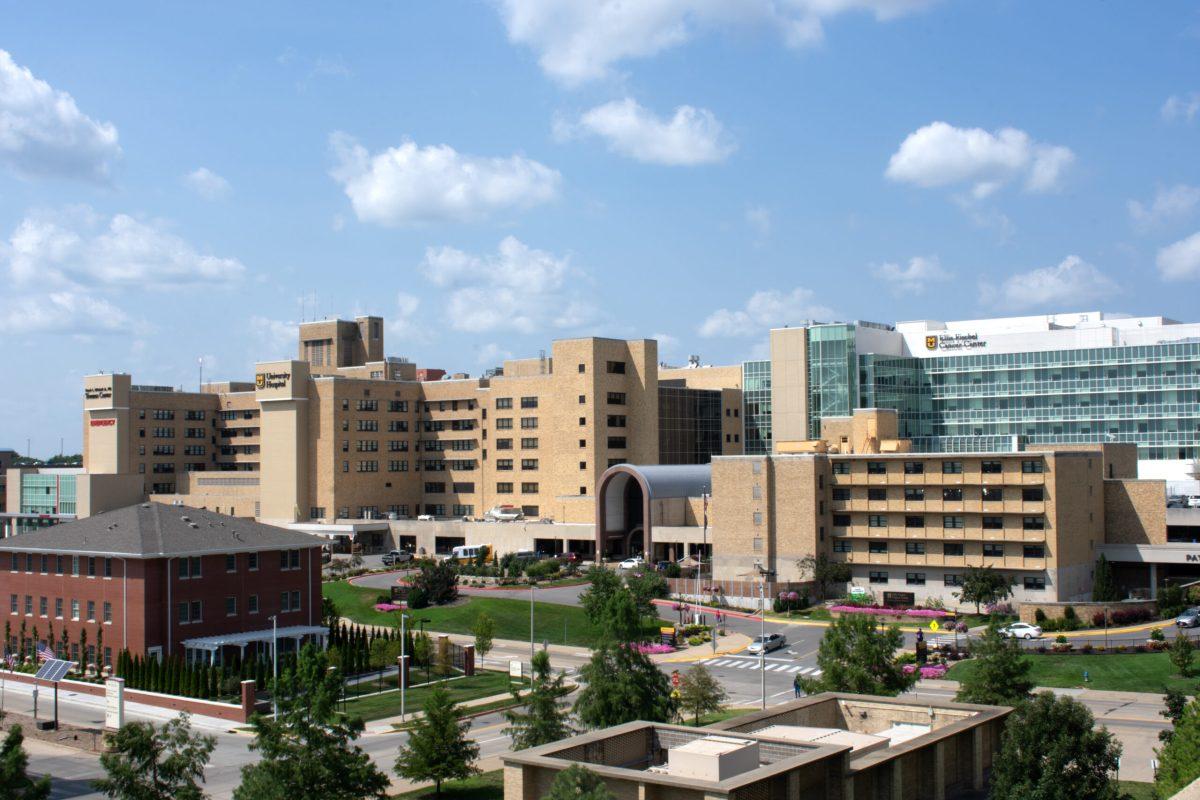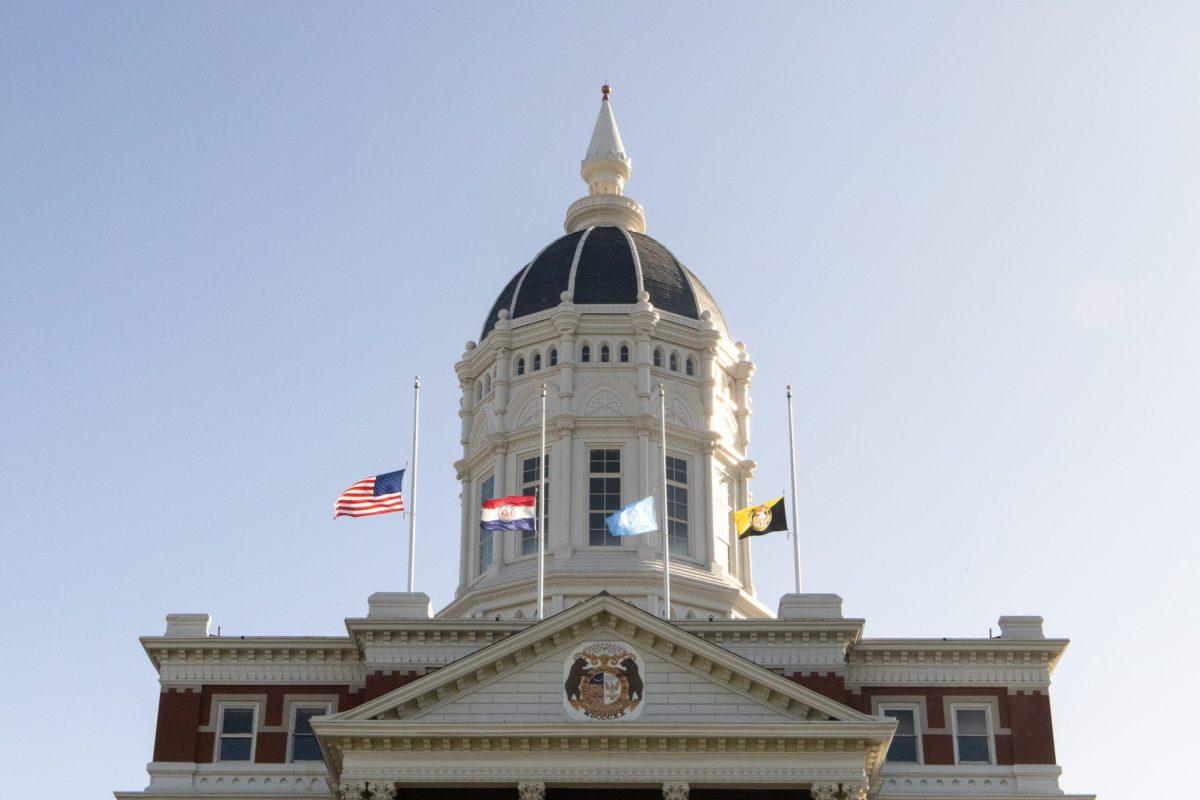It took two weeks for a group of nine MU graduate students and instructors in the Department of Textile and Apparel Management to cut the fabric for 37,750 face mask kits, which are being handed out by MU Health Care to volunteers who will sew that fabric into masks.
MU Health Care’s goal is to have 100,000 masks prepared for a contingency plan. It is relying on help from the university and the community to reach this goal.
For the nine TAM Department volunteers, this project had a bit of a learning curve.
“We started out manually cutting, and we cut about 1,000 the first day,” Claudine Barner, TAM Department instructor and student adviser, said. “At our very best we cut 10,000 in one day. [By] ramping up our efficiency, our equipment [and] our shifts, we got the process going so that this could push out and not be the bottleneck that was holding everything up.”
The fabric used for the masks is from the company Roc-lon and was approved by MU Health Care’s Infectious Diseases department.
For Nicolette Leiby, a first-year master’s student in the TAM Department, the experience felt like running a small business.
“We had to organize around a schedule and we had to work with the outside businesses for pickup of the cut fabric as well as delivery of the fabric,” Leiby said.
For two weeks, in shifts running from 8 a.m. to 10 p.m., volunteers cut 33 inch long pieces of fabric, stacked them 10 pieces high and sent them to the laser cutting machine, a full spectrum laser, which was programmed to cut out the mask shape.
“The computer is connected to the cutting machine. You upload a design into the computer,” Cydni Robertson, a Ph.D. student in the TAM Department, said. “Once the computer recognizes what design it’s supposed to be, it sends the message to the [machine].”
Throughout the fabric cutting process, the volunteers practiced social distancing. They stayed six feet apart with no more than three people in the lab at once.
“We did make sure we had sanitizer and gloves on deck, [and] people brought in their own masks,” Robertson said.
The change in procedure due to social distancing was also apparent when it came to training. Lida Aflatoony, a Ph.D. candidate in the TAM Department, was the only volunteer who knew how to work with the laser cutter at the start of the project. She trained a colleague remotely via Zoom to use the machine.
“After that, in groups of two or three, they trained each other,” Aflatoony said. “So in a very short period of time, like one or two days, we were all able to cut a large quantity of masks using that technology.”
Aflatoony decided to volunteer her efforts to this project, in part, because of her cousin, who is a doctor in Italy.
“She works in a hospital, on the frontline, fighting COVID-19,” Aflatoony said. “At the beginning of the pandemic she got infected by the virus. It was hard for me to hear that news.”
Protective gear has become increasingly important during this pandemic.
“[One of] the reasons for what happened in Italy was the lack of protective gear in hospitals at the beginning,” Aflatoony said. “Right now, most fashion brands and big fashion names are producing protective gear for health care.”
Aflatoony isn’t the only volunteer who pinpoints family as a reason for joining this project.
“My daughter actually lives in New York, so I’ve been kind of frustrated that I can’t help New York or help her,” Leiby said. “I thought, ‘This is the way I can help do something for a community.’”
For now, the TAM Department has stopped cutting fabric. The focus has shifted to volunteers from the community sewing masks from the kits given out by MU Health Care.
While the fabric cutting portion of the project has come to a close for now, Barner recognizes its importance in the big picture.
“We’re not the ones on the front line but we want [those on the front lines] to know that we’re behind them, and we’ll do our part,” she said. “This is the time when the textile department has the skill needed to help people, and so we were glad to do it and be this little part of something bigger.”
_Edited by Alex Fulton | [email protected]_


